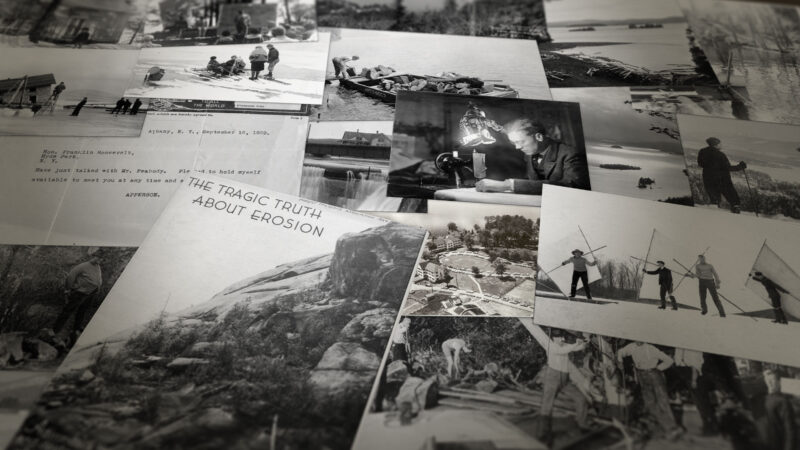- April 28, 1937 – George Marshall (11 West 42nd Street, NYC) to JSA –
Dear Apperson:
I should have answered your letter a long time ago but it came just as I was leaving for a three weeks trip South. I am just catching up with my correspondence now.
I have not seen Dr. Phelps’ letter except for the copy which you sent to me. It is certainly an amazing document and I think it absurd that pressure was apparently brought to bear on her to make her write a letter of that sort.
Unfortunately, I was South at the time of the Board of Governors meeting and have not heard yet just what transpired there. However, I am going to make inquiries about it and shall also try to find out what the president and the chairman of the conservation committee are doing to put into effect our resolution in article VII Section 7. I do not expect too much from these sources but I think it well to keep after them. At the moment I still think it important for its influence on public opinion that our resolution was past.
I am delighted to hear that the Federated Garden Clubs and other organizations have past {passed] similar resolutions to that of the Adirondack Mountain Club. If handled properly I think the accumulated effect of all these outdoor groups should be of great help.
I just attended an extremely interesting Wilderness Society meeting in Washington, D.C. last weekend. It is interesting to know of the great many fights that are going on all over the country to preserve existing wild areas and to prevent encroachments of mechanical civilization in these areas.
You may be interested in the statement of the objects of the Wilderness Society as adopted for inclusion in the by-laws. They are as follows:
- To enlist the American people in the preservation of the American wilderness.
- To spread the conception that the wilderness is a valuable natural resource of the people and should be conserved as such.
- To promote nation0wide cooperation in resisting the invasion of such wilderness by the sights, sounds, and other influences of civilization, including routes which can be used for mechanized transportation, all commercial developments, and those non-commercial improvements and influences which clash seriously with the primeval environment.
The term wilderness as used herein shall apply to areas maintaining their primitive environment or influence, or to areas remaining free from routes which can be used for mechanized transportation.
Sincerely yours,
George Marshall
